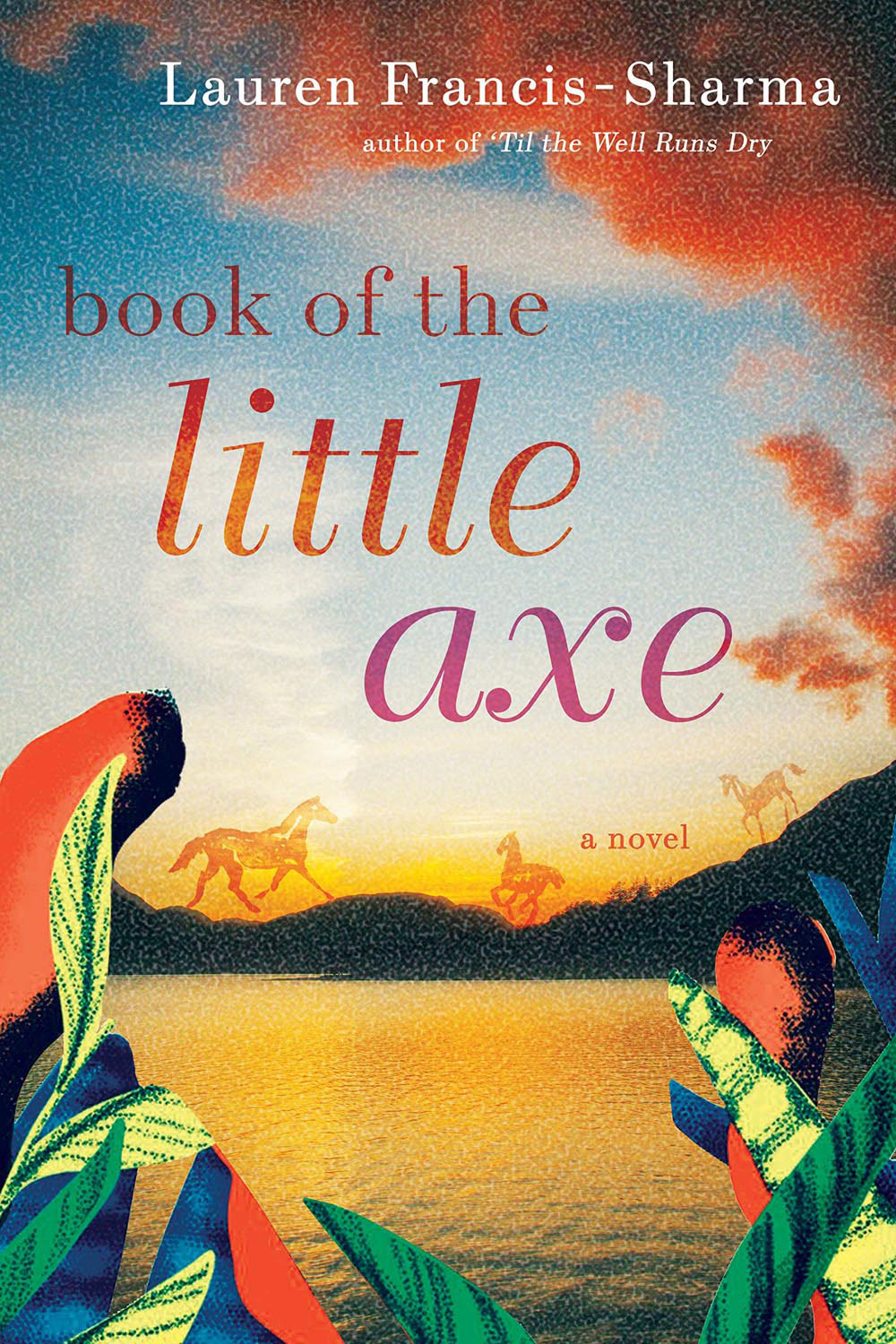Book of the Little Axe
by Lauren Francis-Sharma (Grove Atlantic, 432 pp, ISBN 9780802129369)
Call any book ambitious, and it’s likely to be true. The rarity is in finding work that outstrips the pace of its own ambition with blistering promise: you’ll find it in Book of the Little Axe, Lauren Francis-Sharma’s second novel.
The worlds, at first, couldn’t seem more disparate: the craggy, unflinching terrain of 1830s Montana, hearkening back to the polyglottal self-determination of late-eighteenth-century Trinidad. Fierce, defiant Rosa Rendón grows up in Trinidad, more comfortable with her father’s horses than the life of genteel domesticity she’s expected to lead. An explosive confluence of events, involving territorial upheaval, the threat of suitors, and a series of sea changes for Trinidad itself, compel Rosa to flee to the American Midwest, where the frontiers are both similar and wildly different to what she’s known. Her life among the Apsáalooke (Crow) Nation, wearing the mantles of wife and mother, place fresh challenges on her shoulders — key among them the task of guiding her son Victor into the man he is becoming.
Weaving across decades, narrators, and acts of brutality twinned with beauty, Book of the Little Axe showcases Francis-Sharma’s deeply impressive craft and pacing evolution from her propitious debut, ’Til The Well Runs Dry. As if the historical era terraforming weren’t already a daunting challenge that the author deftly surmounts, the narrative squares its shoulders against colourism, misogyny, xenophobia, racist colonial-settler ideologies, and the everyday cruelties all people in damning times feel ready to commit. In prose that draws you deep with its luminous descriptiveness, and in plot navigations as treacherous — and deeply thrilling — as a herd’s stampede just missing your vital organs, this is a novel that will, unsolicited, attach itself to your long-term memory, your survival instincts, your animate heart.
The Dyzgraphxst
by Canisia Lubrin (McClelland & Stewart, 176 pp, ISBN 9780771048692)
Dysgraphia relates to the neurological incursion against our human capacity to write. St Lucian-Canadian Canisia Lubrin’s second collection of poems, The Dyzgraphxst, recalibrates the colonial orientation of the tongue that has been taught to language, to hold and protect speech for only one, expected empire. Here are poems that not only trouble the lexicography, they ramfle the library of the regime; they make mas in the gayelles of Black queer survival and thriving. Jejune, who carries themself through a landscape of glut, of stasis, of hardscrabble serenities popping up as stubbornly as bright weeds, is a narrator unlike any you’ve met, a voice who is open to your voice, metatextually inviting you in to insert your “I” in this journey. Open to any page, and Lubrin’s language prompts you to brocade it large in your diary of finest utterances.
Jane Eyre: Caribbean Drawings
by Rex Dixon (Hansib Publishers, 119 pp, ISBN 9789768280916)
Mr Rochester: charmer or consummate coward? Opinions usually vary, depending on whether you’re a Jane Eyre stalwart or a devotee of Wide Sargasso Sea. In these drawings, Rex Dixon circumvents the binary altogether, leaving it up to you to see what he imagines: darkly outlined figures summoning dread and delight starkly populate the frame, hauntingly garlanded by gatherings of inked words not dissimilar to symbolic poems. Here, detailed for us in transgressive illumination, is not only Rochester’s world, or Charlotte Brontë’s realm, but the hybrid evolution of Dixon’s own transplanted, British-Caribbean existence. These drawings are admirably flanked by Patricia Mohammed’s introductory essays, furnishing the images with perspicacious critique — making room, in the same gesture, for the art to take imaginative centrestage. This work conjures windswept moors and archipelagic heat: a keepsake for the eye and spirit.





















